Photo Story: One Week in the West Bank
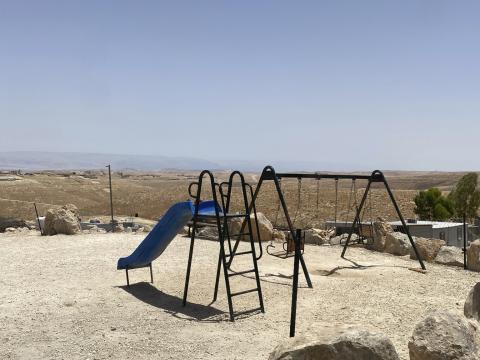
At the beginning of July, a World Vision EU Representation staff went to the West Bank for one week. With one picture per day, this photo story zooms in on the people met, their challenges and stories.
Day 1
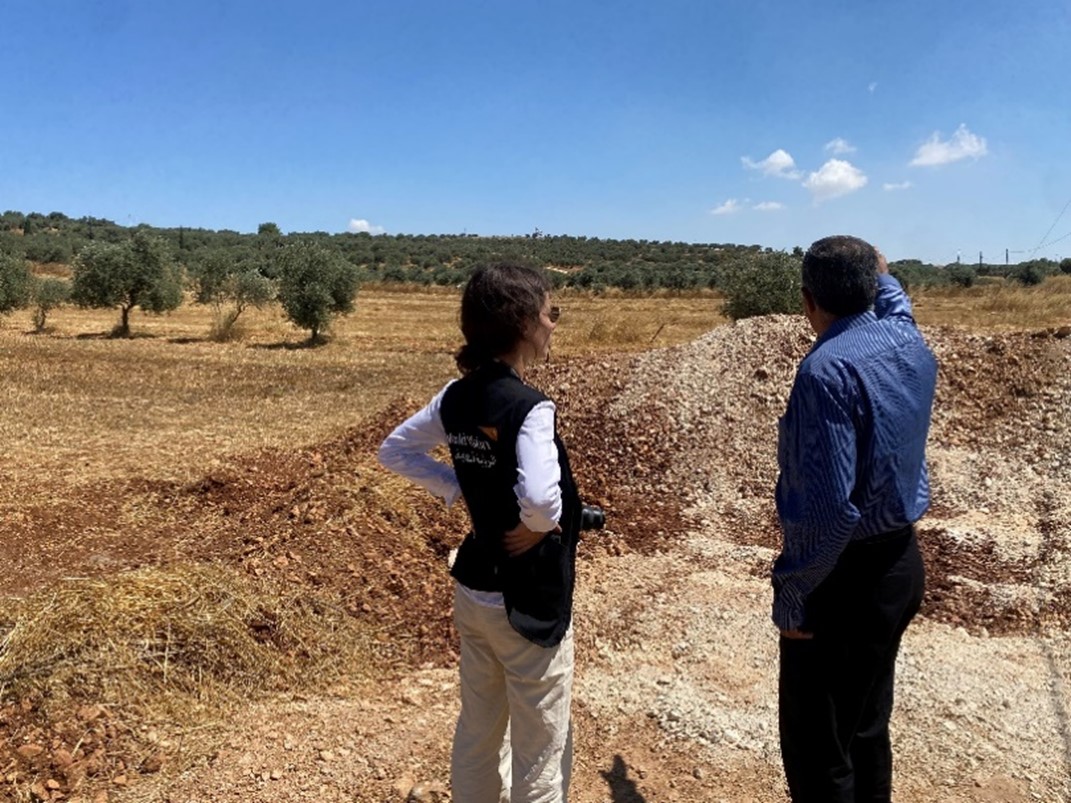 Member of the Council village of Qusrah standing with World Vision staff in front of mount of soil meant to restrict access to agricultural and grazing land.
Member of the Council village of Qusrah standing with World Vision staff in front of mount of soil meant to restrict access to agricultural and grazing land.
In Qusrah, in the Nablus Governorate, restrictions on movements and violence have surged over the past months: going to school, to work, accessing grazing and agricultural land has become increasingly dangerous. Six Palestinians, including one child, have been killed in Qusrah and violence is not stopping.
“People do not sleep at night because they are afraid: many families are thinking of leaving the village” - a Council member of Qusrah, Nablus Governate
Day 2
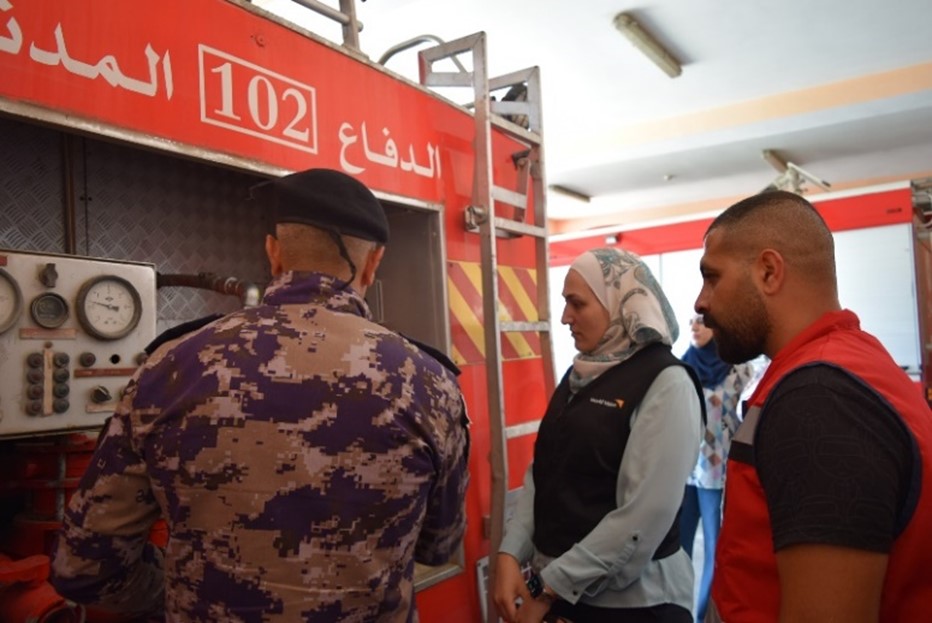 Palestinian Civil Defence staff and volunteer showing World Vision staff old equipment they are forced to use due the challenges around getting new tools.
Palestinian Civil Defence staff and volunteer showing World Vision staff old equipment they are forced to use due the challenges around getting new tools.
In Qalqilya, in the Qalqilya Governorate, staff from the Palestinian Civil Defence shared about the unprecedented challenges they are facing. Between restrictions on movements and violence, they are often delayed or blocked on their way to villages and cannot reach residents in time to effectively help. On top of everything, the financial crisis is especially straining their capacity between the lack of human resources and financial means to get new or even repair very old equipment.
“A few weeks ago, there was a fire in my house and my wife called me when I was on duty. I rushed there with colleagues, but we were prevented from entering the area. It was devastating not to be able to intervene to protect my own family” - a fire-fighter
Day 3
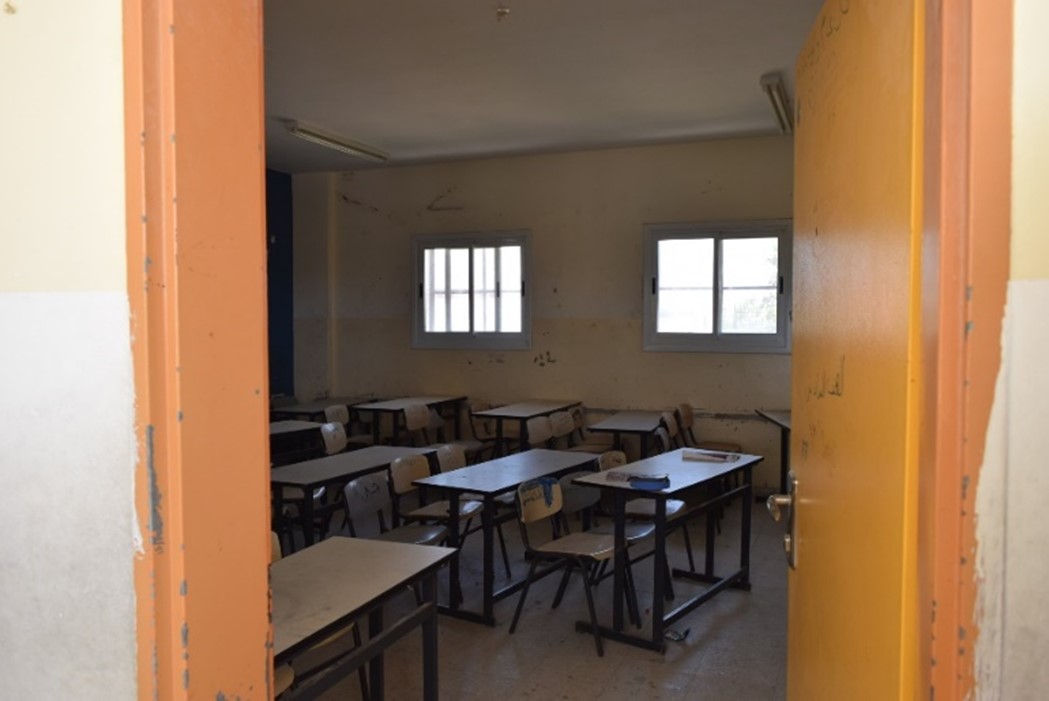 Classroom in Maen school.
Classroom in Maen school.
In the school of Maen village, in the Hebron Governorate, the headmaster told us about the education crisis affecting schools across the West Bank. The unprecedented disruptions, starting with the COVID-19 pandemic, continue due to the escalating conflict, adding up to three years of discontinuous education for students. Surging violence and restrictions on movements are severely impacting children’s access to education, and this was the focus of the exchange with few students.
“I want to live like any other child and be safe” - Sanaa, student in Masafer Yatta
Day 4
World Vision community volunteer in Jiftlik standing in front of the local clinic.
In Jiftlik, in the Jordan valley, we heard about the increasing challenges faced by the community to access healthcare. Restriction on movements and violence are such that people are increasingly afraid to travel in order to reach hospitals; they also cannot afford the spiking costs for transportation to these locations. The financial crisis is adding further strain: local clinics are usually open twice a week, with very limited capacity and equipment, including medicines.
“The clinic is only open twice a week: sometimes we have to stop registering patients and send them home because there are not enough doctors” - a doctor in Jiftlik
Day 5
A mother and child in the child-friendly space at a local health clinic in Deir al’Asal alFaqua.
In Deir al’Asal alFaqua, in South Hebron, the local community shared with us very similar challenges about limited access healthcare. As in Jordan Valley and all over the West Bank, restriction on movements, violence, economic crisis are deeply affecting Palestinians’ ability to access health services. Despite these hardships, Aysha wanted to share the positive impact from being part of World Vision’s Early Childhood Development programme which supports mothers during pregnancy and continues to support children (along with their caregivers) until the age of six. She especially valued the child-friendly corner of the clinic and overall its rehabilitation. She also found particularly helpful the individual and group sessions where she “learnt new precious information and knowledge as a mother”. And she found “as a woman, unvaluable support in the community volunteer during these hard times”.
Day 6
Demolished community space in Um AL Khair.
Also in Um AL Khair, Masafer Yatta, World Vision implements Early Childhood Development programming. Yet, the community building where activities used to be hosted was just demolished, along with several homes. Jamila, the community volunteer, told us that the same morning the building was demolished she tried to hold the group session with 20 mothers out in the sun – unsurprisingly, in between the heat, the fear and tensions it did not work; they had to interrupt it. The same building was going to be used for a Summer Camp for children: it's now unsure whether the activities will take place.
“The most difficult of all is to see the trauma and the fear in the eyes of my children” - a mother of five, whose house was demolished
Day 7
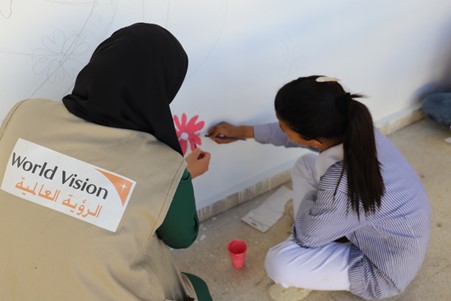 Staff member of World Vision Jerusalem – West Bank – Gaza (JWG) during an activity on psychosocial support.
Staff member of World Vision Jerusalem – West Bank – Gaza (JWG) during an activity on psychosocial support.
There is no easy way to conclude such a photo story.
On top of long-term existing operations[1], World Vision has been responding to the increasing humanitarian needs in the West Bank providing emergency relief including:
- assistance for displaced families;
- helping vulnerable communities to protect children and young people from violence and during emergencies;
- supporting parents and caregivers whose children are suffering emotional distress and mental harm;
- equipping health centres with medical supplies and tools to better respond to medical emergencies and the needs of pregnant women and newborn babies;
- providing safe places where communities can gather for support;
- and scaling up our response to include livelihoods interventions and education projects.
None of this could happen without the bravery and dedication of each colleague working in the West Bank.
[1] For over 48 years, World Vision has worked to nurture Palestinian children, improve their resilience and bring them hope. World Vision operates in the West Bank, via programmes in Early Childhood Development, Education in Emergencies, Child Protection and child and youth resilience and life skills. In 2023, our programmes directly benefited over 136,000 individuals, including 95,000 children residing in 150 villages across the West Bank.